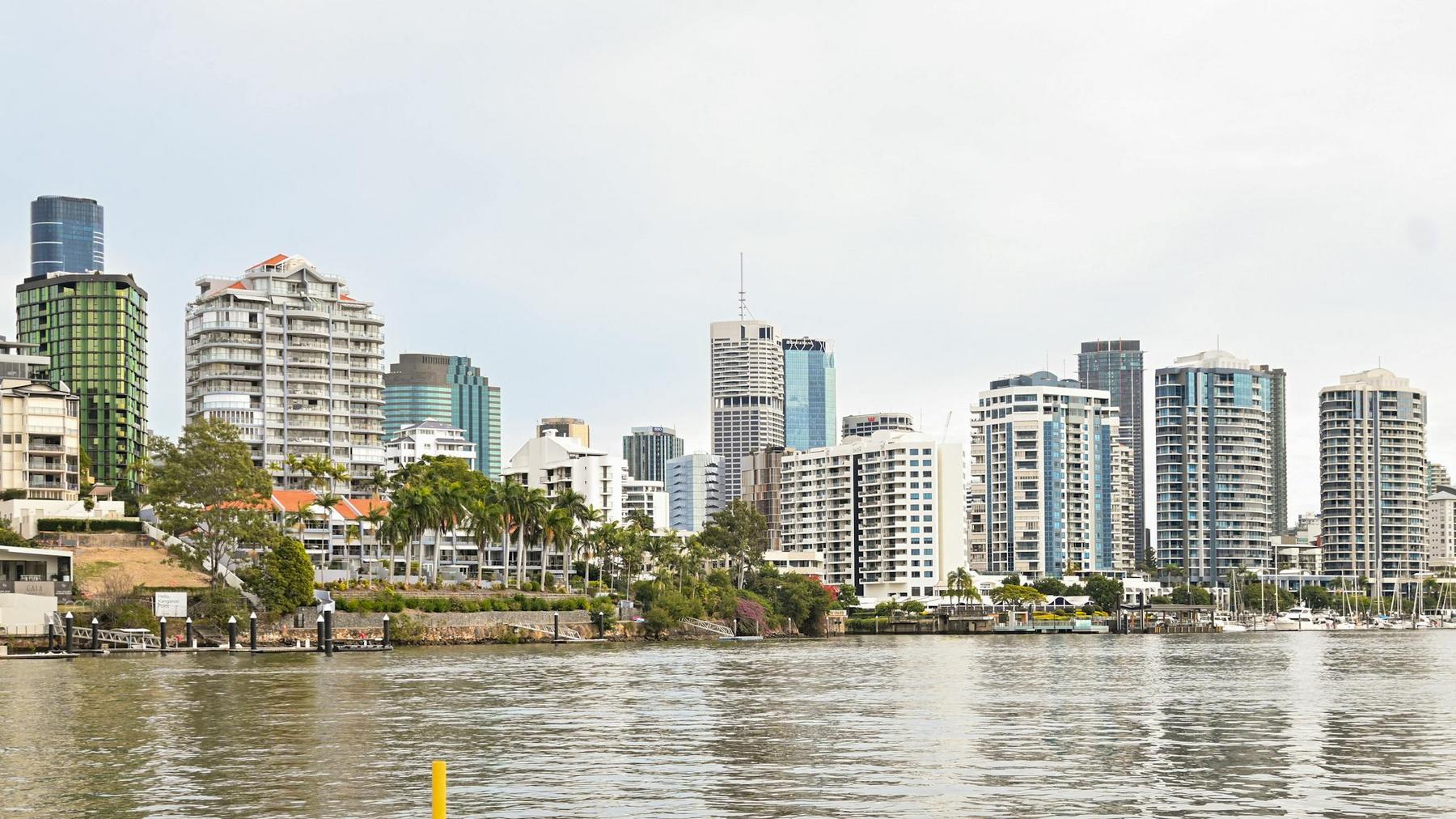Finding the right disability housing can feel overwhelming, especially when you’re navigating the complexities of Specialist Disability Accommodation (SDA) funding and trying to understand what options are genuinely available across Brisbane’s diverse neighbourhoods. For individuals with disabilities and their families, the search for appropriate accommodation isn’t just about finding a place to live—it’s about discovering a home that enables independence, dignity, and genuine community connection whilst providing the specialised support needed for daily life.
What Makes Brisbane’s SDA Corridor from Fortitude Valley to Eight Mile Plains Special?
The corridor stretching from the vibrant inner-city atmosphere of Fortitude Valley to the suburban tranquillity of Eight Mile Plains represents one of Queensland’s most comprehensive networks of disability housing options. This strategic urban zone offers everything from high-density apartment living with immediate access to Brisbane’s cultural heart, to purpose-built suburban facilities with extensive outdoor spaces and therapeutic amenities. Yet despite this wealth of options, many eligible individuals remain uncertain about their choices, confused by funding mechanisms, or simply unaware of the quality accommodation solutions available right here in Brisbane.
Transport connectivity forms the backbone of what makes this corridor exceptional for SDA residents. The comprehensive public transport network includes frequent bus services with the 555 route providing direct 29-minute connections between terminal points every 20 minutes, supplemented by rail services from Fortitude Valley Station offering 10-minute peak frequency to Brisbane CBD and beyond. All Queensland Rail City Network services and Transport for Brisbane buses are wheelchair accessible, ensuring residents with mobility impairments can navigate the entire corridor independently.
The geographic diversity creates genuine choice for residents with different preferences and support needs. Fortitude Valley’s urban density provides immediate access to Chinatown’s multicultural dining, entertainment precincts, and proximity to major hospitals, whilst middle-corridor locations like Cannon Hill offer balanced suburban amenities with maintained city connectivity. Eight Mile Plains delivers larger property sizes for purpose-built facilities with therapeutic gardens and recreational spaces, all whilst maintaining reasonable access to urban employment and services through the planned Brisbane Metro project connecting directly to the CBD.
Healthcare accessibility throughout the corridor proves particularly significant for SDA residents who often require frequent medical appointments and therapeutic interventions. The concentration of specialist medical facilities within reasonable travel distance, including major hospitals and allied health services, enables residents to maintain comprehensive healthcare relationships without the burden of extensive travel or complex transport arrangements.
| Location | Distance to CBD | Key Transport | Healthcare Access | Housing Type Focus |
|---|---|---|---|---|
| Fortitude Valley | 1.5km | Rail + Bus Hub | Major hospitals nearby | High-density apartments |
| Cannon Hill | 8km | Bus network | Community health services | Purpose-built facilities |
| Eight Mile Plains | 13km | Busway + Metro planned | Suburban medical centres | Large-scale developments |
How Do Brisbane’s Five SDA Categories Meet Different Support Needs?
Brisbane’s specialist disability accommodation operates within five distinct design categories established by the NDIS, each targeting specific support requirements and independence levels across the Fortitude Valley to Eight Mile Plains corridor. Understanding these categories proves essential for matching individual needs with appropriate housing solutions that genuinely enhance quality of life whilst providing necessary safety and support infrastructure.
Basic SDA focuses primarily on location-based advantages rather than extensive design modifications, where properties gain value through strategic positioning within service networks that facilitate efficient support delivery. These properties, whilst appearing similar to standard housing, maintain NDIS registration standards and accommodate support worker activities effectively. Throughout the Brisbane corridor, Basic SDA properties often leverage transport connectivity and service proximity to create environments where residents can access community resources efficiently whilst receiving necessary support.
Improved Liveability SDA incorporates targeted environmental modifications specifically benefiting individuals with sensory, intellectual, or cognitive impairments. These properties feature high-contrast colour schemes between walls and floors assisting residents with visual impairments, enhanced lighting systems supporting those with sensory processing difficulties, and spatial configurations reducing confusion for residents with cognitive challenges. Brisbane providers have implemented innovative technology-assisted features and environmental controls enabling residents to manage their living environment independently whilst maintaining safety and comfort.
Fully Accessible SDA addresses comprehensive physical accessibility requirements for wheelchair users and individuals with significant mobility challenges. Properties feature widened doorways, accessible bathrooms with specialised fixtures, ramp access systems, and elevator installations where required. Kitchen designs incorporate adjustable height counters, accessible appliance placement, and specialised storage solutions enabling residents to participate in meal preparation and household management activities. The accessibility features extend to outdoor areas, ensuring residents can access gardens, recreational spaces, and parking facilities without barriers.
Robust SDA provides specialised environments for individuals with complex behavioural support needs, incorporating enhanced structural features and safety systems whilst maintaining residential appearance that promotes dignity and community integration. Brisbane robust SDA developments utilise reinforced construction materials, specialised window and door systems, and enhanced security features balanced with creating welcoming, homelike environments that support positive behavioural outcomes and community acceptance.
High Physical Support SDA represents the most specialised category, designed for individuals requiring extensive environmental modifications and support infrastructure. These properties incorporate ceiling hoist systems, automated door controls, specialised bathroom configurations with multiple transfer options, and backup power systems ensuring continuity of essential equipment operation. Brisbane High Physical Support properties often include dedicated spaces for overnight support workers, specialised storage for medical equipment, and enhanced communication systems enabling residents to request assistance efficiently whilst maintaining privacy and independence.
Which Brisbane SDA Providers Offer the Most Comprehensive Services?
The Brisbane disability housing market features established providers who have developed sophisticated service models combining purpose-built accommodation with integrated support services across the Fortitude Valley to Eight Mile Plains corridor. These organisations demonstrate varying approaches to creating environments that balance specialised support provision with resident independence and community integration.
Wesley Mission Queensland operates as one of Brisbane’s most comprehensive SDA providers, particularly noted for their Cannon Hill development that exemplifies integrated high physical support accommodation with 24-hour care availability. Their service model emphasises Certificate III qualified support workers operating under registered health professional supervision, creating clinical governance frameworks ensuring both resident safety and support quality. Wesley Mission’s approach demonstrates how established community organisations can leverage their broader service networks to create holistic support environments.
Youngcare has carved a distinctive position focusing specifically on age-appropriate housing solutions for young people with high physical support needs, addressing the critical gap where young adults with significant disabilities often face inappropriate aged care placement. Their Brisbane developments incorporate contemporary design principles and amenity standards reflecting young adult lifestyle preferences whilst providing specialised infrastructure necessary for complex support delivery. Advanced assistive technology integration, modern recreational facilities, and design elements promoting independence and social interaction characterise their approach.
Home Caring operates diverse housing options spanning the full spectrum of SDA design categories and building types throughout Brisbane. Their comprehensive portfolio includes Supported Independent Living homes, group homes, and specialised high care facilities, creating service networks accommodating residents with varying support needs and preferences. Their model emphasises homelike environments supporting individual choice and community integration whilst maintaining specialised features necessary for safe and effective support delivery.
Liverty Housing demonstrates scalable service models maintaining quality and consistency across multiple Queensland locations whilst adapting to local community characteristics. Their approach emphasises resident choice and control in accommodation decisions, working with prospective residents to identify properties aligning with support needs, lifestyle preferences, and community connections. This participant-centered approach reflects best practice principles in disability support service delivery.
OSAN Ability provides specialised SDA housing solutions with emphasis on personalised care enabling residents to live dignified lives with appropriate support. Their Brisbane operations incorporate 24-hour staffing arrangements and access to specialised services including health, clinical, and positive behaviour support, creating comprehensive environments addressing both accommodation and therapeutic needs through unified service delivery models.
What Does the SDA Application Process Really Involve?
Accessing SDA funding through the NDIS requires navigating a comprehensive assessment process that evaluates both disability-related housing needs and eligibility for specialised accommodation support. The pathway begins with establishing active NDIS participation with an approved plan demonstrating extreme functional impairment or very high support needs that cannot be adequately addressed through standard housing options, even with modifications and support services.
The assessment foundation requires comprehensive documentation from qualified healthcare professionals, particularly occupational therapists conducting functional capacity assessments detailing current living situations, safety risks associated with standard housing, and specific accommodation features required for independent living. These assessments must demonstrate clear connections between disability characteristics and specialised housing feature requirements, providing evidence-based justification for SDA funding inclusion in NDIS plans.
Support coordinators prove essential in navigating the SDA application complexity, providing expertise in NDIS procedures whilst assisting individuals and families to gather necessary documentation and present compelling cases for SDA inclusion. These professionals understand complex interactions between different NDIS funding categories and help ensure SDA applications align with broader support goals and funding strategies, often proving essential in avoiding common application pitfalls.
The approval timeline typically extends between three and seven months from initial application submission, reflecting the comprehensive assessment nature and significant financial commitment SDA funding represents. During this period, applicants may experience multiple review stages, requests for additional information, and potentially appeals processes if initial decisions don’t align with expectations or assessed needs. This extended timeframe emphasises the importance of early planning and preparation, particularly for individuals whose current housing situations are becoming increasingly inappropriate or unsafe.
Property selection follows funding approval, where participants work with SDA providers to identify suitable accommodation options matching approved design categories, building types, and location preferences. This stage involves property inspections, compatibility assessments with potential housemates in shared arrangements, and evaluation of support service availability in chosen locations. The NDIS framework ensures participants retain choice and control over these decisions, preventing providers from making unilateral placement decisions without meaningful participant involvement.
Understanding Brisbane SDA Costs and Funding Structures
The SDA funding model operates through sophisticated pricing frameworks reflecting specialised disability accommodation requirements whilst ensuring financial sustainability for providers and reasonable access for eligible participants. The NDIS establishes annual price limits for different SDA categories, with pricing structures accounting for design category, building type, location factors, and additional features such as overnight assistance rooms and specialised equipment requirements.
Location factors significantly influence SDA pricing across Brisbane metropolitan areas, with the NDIS applying geographic multipliers reflecting variations in property values, construction costs, and operational expenses between different areas. Properties in inner Brisbane locations such as Fortitude Valley typically attract higher price limits reflecting premium costs associated with inner-city development and operations, whilst locations in outer suburban areas like Eight Mile Plains may operate under different pricing parameters reflecting their market characteristics and operational environments.
The pricing structure distinguishes between new build properties, existing stock, and legacy stock, with different price limits applying based on development costs and expected operational characteristics. New build properties, representing the majority of current Brisbane SDA developments, operate under price limits reflecting contemporary construction costs and incorporating latest accessibility features and design standards.
Participant contributions to SDA costs follow established principles where individuals pay reasonable rent contributions based on income and assets, similar to standard rental arrangements but adjusted to reflect SDA’s specialised nature. These contributions are calculated according to NDIS guidelines designed to ensure participants retain financial incentives for appropriate accommodation choices whilst contributing fairly to housing costs, protecting participants from excessive housing cost burdens whilst ensuring they maintain investment in accommodation decisions and outcomes.
Recent updates to NDIS pricing arrangements for 2025-26 include adjustments to various support categories impacting SDA operations, with disability support worker services increasing by 3.95% and nursing support prices rising by 3.2%. These adjustments reflect broader economic conditions and wage growth in the disability sector, ensuring SDA providers can maintain appropriate staffing levels and service quality whilst managing operational cost increases.
Accessing Brisbane’s Transport Network from SDA Properties
Transportation accessibility forms a cornerstone of successful independent living for SDA residents across the Fortitude Valley to Eight Mile Plains corridor, with comprehensive public transport networks enabling residents to maintain community connections, access healthcare services, and participate in employment and social opportunities throughout the broader Brisbane metropolitan area.
The bus network provides primary connectivity throughout the corridor, with frequent services operating between Fortitude Valley and Eight Mile Plains via multiple route options providing flexibility in travel planning and destination access. The 555 bus route delivers direct connections between these terminal points with approximately 29-minute journey times, operating every 20 minutes throughout the day and providing predictable, accessible transport options for SDA residents and their support workers.
Rail infrastructure supplements bus services through high-frequency connections between Fortitude Valley and the broader Queensland Rail City Network, enabling SDA residents to access employment opportunities, healthcare services, and social activities across South East Queensland. Fortitude Valley Station provides direct connections to Brisbane CBD, South Brisbane, and onward connections to suburban areas, with services operating every 10 minutes during peak periods whilst maintaining regular schedules throughout the day.
Universal accessibility ensures inclusion across all Queensland Rail City Network services and Transport for Brisbane bus services, with wheelchair accessibility complemented by audio announcements, visual information systems, and accessible boarding facilities supporting residents with various sensory and cognitive impairments. This comprehensive accessibility commitment recognises that SDA residents may have diverse support needs and ensures transport infrastructure accommodates these requirements rather than creating barriers to community participation.
Future transport infrastructure development includes significant investments enhancing connectivity and accessibility for SDA residents throughout the corridor. The Brisbane Metro project will establish dedicated bus rapid transit connections between Eight Mile Plains and the CBD, with onward connections to major healthcare facilities including the Royal Brisbane and Women’s Hospital, demonstrating government commitment to improving transport accessibility whilst providing enhanced options for SDA residents to access employment, healthcare, and community services with greater efficiency and independence.
Making Your Next Steps in Brisbane Disability Housing
Brisbane’s specialist disability accommodation landscape across the Fortitude Valley to Eight Mile Plains corridor offers unprecedented opportunities for individuals with disabilities to access housing that genuinely supports their independence, dignity, and community participation goals. The comprehensive range of options, from urban apartment living with immediate city access to suburban facilities with extensive therapeutic amenities, creates genuine choice for residents with diverse support needs and lifestyle preferences.
The success of SDA provision within this corridor demonstrates the potential for person-centred disability support when appropriate housing infrastructure combines with integrated support services, comprehensive transport connectivity, and ongoing community investment in accessibility and inclusion. Brisbane providers have developed innovative service models that address the complex intersection of accommodation, health, and social support needs whilst maintaining the choice and control principles that underpin quality disability support provision.
The continued evolution of Brisbane’s SDA market, driven by ongoing demand growth, technological innovation, and policy development, suggests that opportunities for accessing appropriate specialist disability accommodation will continue expanding whilst quality standards and resident outcomes improve. The geographic diversity and transport connectivity of the Fortitude Valley to Eight Mile Plains corridor positions this area as a sustainable foundation for long-term community participation and independent living for individuals with significant disabilities.
For individuals and families considering SDA options in Brisbane, the comprehensive assessment and application processes, whilst complex, provide pathways to accessing accommodation that can genuinely transform quality of life outcomes. The investment in understanding available options, navigating funding mechanisms, and engaging with experienced providers creates opportunities to identify housing solutions that align with personal goals, support requirements, and community connections whilst providing the specialised features necessary for safe, dignified, and independent living.
How long does it take to get approved for SDA funding in Brisbane?
The SDA approval process typically takes between three and seven months from initial application submission. This timeframe reflects the comprehensive nature of assessments required, including functional capacity evaluations and detailed documentation of support needs.
What’s the difference between SDA categories available in Brisbane?
Brisbane offers all five SDA design categories: Basic SDA (location-focused), Improved Liveability SDA (sensory and cognitive enhancements), Fully Accessible SDA (comprehensive physical accessibility), Robust SDA (for complex behavioural support), and High Physical Support SDA (extensive environmental modifications).
Can I choose where I live within the Fortitude Valley to Eight Mile Plains corridor?
Yes, NDIS participants retain choice and control over their accommodation location within their approved SDA category. Providers work with participants to identify properties that meet their support needs and lifestyle preferences.
How much will I need to contribute towards SDA housing costs?
Participant rent contributions are calculated based on income and assets using NDIS guidelines, ensuring a fair and affordable arrangement that reflects the specialised nature of SDA accommodation.
What transport options are available for SDA residents across the corridor?
The corridor offers comprehensive accessible public transport including frequent bus services (such as the 555 route with a 29-minute direct journey), rail services from Fortitude Valley Station, and future Brisbane Metro connections, all designed with accessibility in mind.



